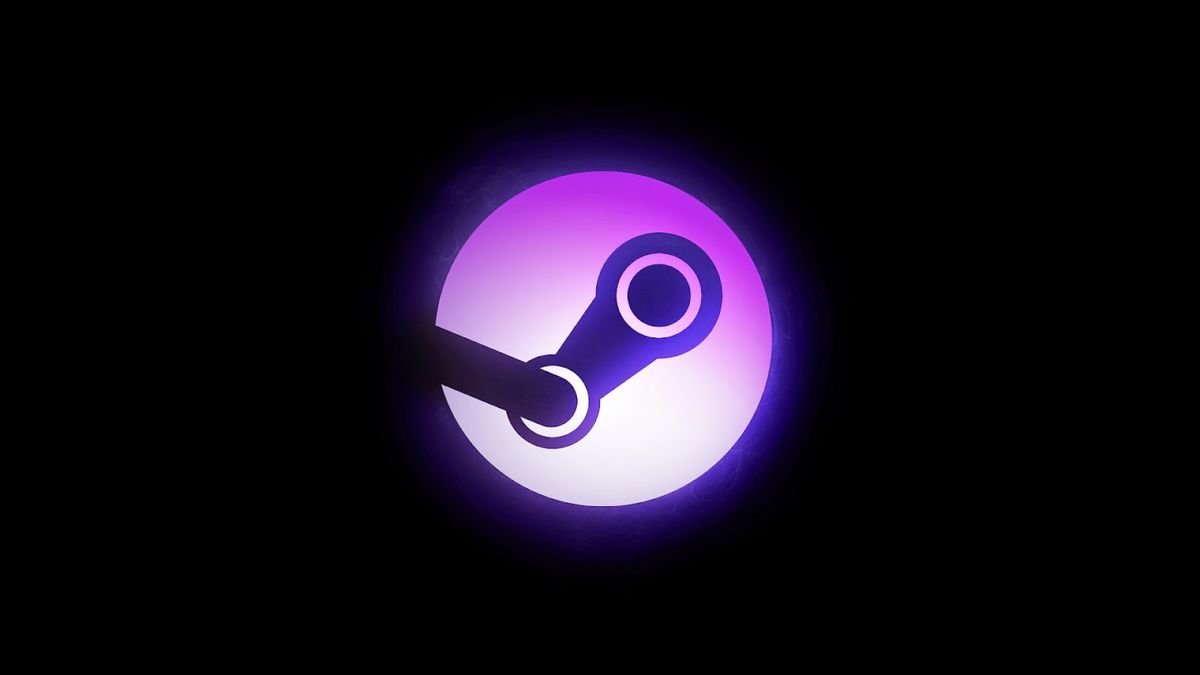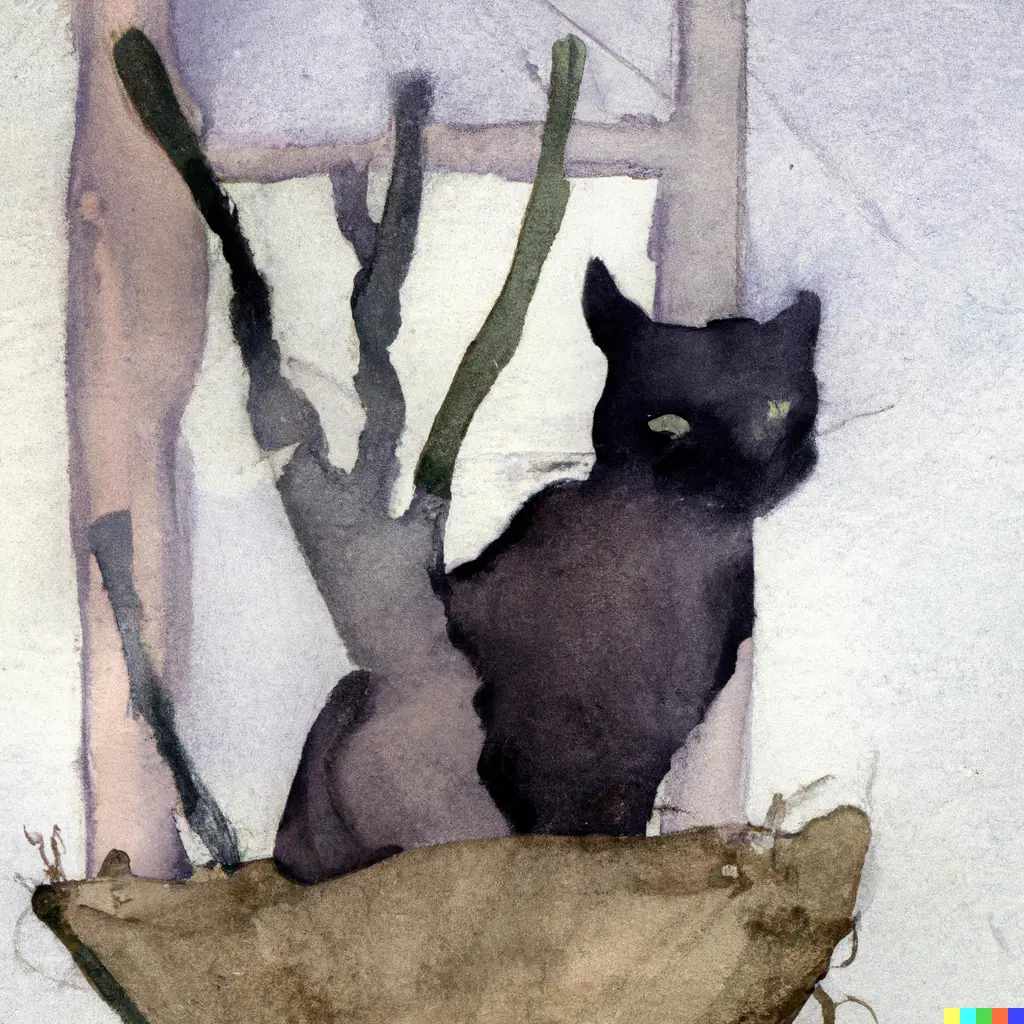This has literally always been the case with Steam, the only difference is that people are told up front now. Things will likely continue to operate exactly the same as it has until now, I doubt Valve wants to disrupt the giant money train they have.
I would be surprised if it even was possible for them to change so that the games are bought. I suspect that would be quite complicated legally.
It’s literally in the title that GOG does exactly that. Why would Steam’s hands be legally tied if GOG’s aren’t?
No, that isn’t what GOG is doing.
GOG is still only licencing games to you. They do offer you the opportunity to download an offline installer though.
As far as I know there is no mandatory DRM on Steam either, so if a publisher wants to they can just make their game be portable and not require Steam to even be installed. Pretty sure all the re-releases that use DOSBox or ScummVM are like this, for example.
Yeah there are loads of DRM free games on steam (mostly indies of course). Steam just offers a very basic (and easily bypassable if you know how) DRM to devs/publishers but they absolutely don’t need to use it.
How is having an offline installer that can’t be taken away, not the same thing as owning?
Because you are still only licensed the game
So, “licensed” is a legal term. Explain to me how being able to keep something forever, isn’t the same as owning?
Here’s another reminder to sign this initiative if you live in the EU.
I’d totally sign…if the Russian funded tory party hadn’t decided we should leave because they were scared of the far right taking votes.
Spread the word, then.
100% agreed. just wish GOG was more linux friendly.
best of both worlds: piracy.
i wouldn’t pirate an indie game tho
Unless you already bought it
Much of the pirated games though will be GOG installers so might as well just install it with lutris/wine
yes
Does GOG work on Linux?
If it works on Steam it works on GOG. Nothing about proton is limited to Steam.
There’s a Linux specific Steam program though. Is there a Linux specific GOG program?
You mean a native version of GOG? I don’t think so, but you can use it through Lutris.
Nowadays the Heroic Games Launcher is the preferred solution for downloading and running GOG games. It’s a community-run project, but officially affiliated with GOG.
The Heroic Games Launcher can download and run GOG games. It’s a community-run project, but officially affiliated with GOG.
Cool, thanks.
How does GOG support Heroic?
They set up a commission with gog if you buy games through heroic
Is this an actual, specific deal with Heroic, or some general affiliate linking thing?
No clue if it’s heroic exclusive but it’s more than just affiliate linking. Heroic embeds the actual gog store page in the launcher and gets a percentage of anything you buy per their agreement with gog
Many of their games do have native linux versions, and a lot do work under wine or proton, which can be used as a Non-steam game in Steam or even without Steam.
Their launcher doesn’t yet have a native linux version but it’s completely optional, and does still run under wine if you really want it.
If I’m not going to use their game manager, then why would I buy the game from them instead of just buying it directly from the game studio? I guess because game studios rarely distribute their own games anymore?
Exactly, the game publishers and distributors are often not the developers themselves. Only one to distribute direct in recent memory was World Of Goo 2, and even that was sold primarily through the Epic store.
NGL This feels disingenuous coming from GOG, Yes, you can keep the installers, but you do NOT own the game.
Seriously not trying to just be contradictory:
What’s the difference? In practical terms, what does this mean for me as the consumer? We don’t own the intellectual property, but may use the software as-is? From a practical, consumer standpoint that feels the same as the days of owning your software on a disc, unable to be taken as long as you have physical control over the device. I’m fine with calling this “owning” personally.
I’m absolutely willing to be wrong on this. I’m by no means an expert. Please, if I have missed something, let me know.
There really is no difference. For almost all intents and purposes, GOG’s offline installers can be treated the same way as physical CDs of way back then, with one of the only exceptions being that you cannot resell them.
Can you sell them? or trade, give, even lend them? My guess is you can’t. And when I was a kid I did all those things.
It’s not anedoctal IMO, but a change in paradigm. I’m not saying it’s all bad. I buy games on GOG. But I don’t own them really
A 2015 study in France showed 54% where more willing to buy a game when they knew they could sell them when done
I can see the functional difference there, with regards to sell/trade/loan. You could of course emulate the functionality, or rely on the honor system for abandon ware stuff, but that’s clunky, inefficient, not worth the energy.
I hadn’t considered the second hand aspect. Even as a kid, I was always more a “build a library” kind of person versus a “cycle my catalog” kind of person. I was considering things from an availability to play the game perspective alone. Thanks for the different perspective!
There is no drm so zip the installer and everything to your friend and call it a day
We were talking about legal offers. Are you legally the owner of your game.
Of course you can share, reproduce, pirate … but that’s not the point here.
I don’t want to advocate for shoveling money into any company, but if you could sell your steam games it would screw over indie devs in a big way. Many games made by small studies or one person don’t have as much content as AAA studies and would be far more prone to a small handful of copies being distributed back and forth on the used market instead of each being a sale that goes to the developer.
Some devs would see a drop in sales as much as 90% and I just don’t think it’s worth it to shoot the gaming industry in the foot like that.
Just to be clear: my main point was that you don’t own any more the game bought on GOG than on Steam.
And there are definitely upsides to this type of market.
Although nowadays I wouldn’t buy a just released triple A 70€ game knowing I can’t sell or give it (not that I play those much anymore). The games I actually want to keep a few and far between.
I buy second hand Switch games for my nephews. It’s cheap, I’m actually giving them something, and they can trade them with their friends or sell them to buy fortnite skins the little shitsAgain, not hating on GOG, I’ve been a customer for a long time. Mainly because I don’t want any kind of launcher. I play 99% solo games, don’t need no updates or multiple clicks to launch a game.
I would ABSOLUTELY argue that you more own a game purchased on gog, with an offline installer, than one purchased on steam. I now see the functional difference between owning a drm-free installer vs owning a physical game, but there’s also a gulf of difference between steam and gog
Just to be entirely fair. The rest of what you said is absolutely spot on.
I agree, you are “more owner” with a GOG game.
Plus, unless the installers have the full package, it’ll still require an internet connection. Usually installers download the files and then install them.
When have they not had the full package on GOG?
They’re called offline installers for a reason.
I’ll give gog this, I have never seen an installer from them that needed an internet connection, That being said, they actively call it licensing in their own agreement
Yeah? And whats the difference in practice?
I like GOG and I like steam too. While it is true that GOG can’t take the offline installer from me, this does not make it true I can play the game forever since many games are dynamically linked to libraries that may not be available in the future. This happened to me with games I just had bought. Steam also dynamically links to libraries but what I like about the way they are doing it is that these are part of the base installation so as long as you keep these files, the games should keep working. Nothing being perfect, I think they both try to do things in their own way and try to convince us that it is the best one.
Doesn’t steam have a clause to the effect of “if we go out of business, you’ll get X period to download your games so you can manage them yourself”?
I don’t know if it’s a clause but Gabe said it at one point. Is that legally binding though? It wouldn’t surprise me one bit that whatever VC eventually buys steam and then runs it into the ground would have no problem changing the user agreement to whatever suited them…
I think I read in the steam agreement itself - I could be wrong, but I generally have a source tagged to my knowledge, and the knowledge is tagged as a direct quote from the document
And yes, if a VC buys out steam I’d be horrified, but it’s structurally resistant to that. It’s largely employee owned and heavily employee managed, their handbook helped me understand the concept of how employee owned businesses could be the answer to many of society’s problems
It’s not legally binding, since it isn’t part of the user agreement you review when buying games on Steam.
Even if that’s not the case, the drm is very easy to crack.
If there’s a grace period, perhaps, however:
- Steam does not provide installers for games, this means that whatever game you want, needs to be 100% functional and already be parsed/deployed/installed by steam on your hard drive.
- That game needs to be DRM free, meaning that it has an executable available that can be launched without steam running or requiring any sort of authentication or input from the steam servers/services before being able to launch, play or even interact with the menus
So only the DRM free games will remain, and only the installed ones at that. Anything that wasn’t will be lost to the wind the moment the distribution service or storage (yours or theirs) bits the dust…
-
installers for games are usually just a script that unzips the game and makes some shortcuts. Steam installs all your games in a standard way in a folder of your choice. You can straight up copy that folder to another computer. You can use another launcher and just play your games, there are already many that can read steam’s standardized format. I’ve done it multiple times to avoid redownloading my library
-
It depends how steam sunsets their DRM, but yes - obviously if a game has 3rd party DRM, that third party is in control. Steam could choose a user hostile way to sunset their own DRM, but they could release ways to deactivate it
DRM is bad, steam provides an easy way for developers to use steam DRM, and it’s generally less user hostile than most DRM. To me, this seems like harm reduction
Ultimately, it’s not up to steam what, if any, DRM a game uses. They manage their in house offering, but the developer doesn’t have to use it if they don’t want to
-
Unpopular opinion: if I have to fudge with Wine instead of Proton, I simply will not bother. It’s 2024. I’m not going to fiddle with configs, or get a setup together just to play a single game. That’s ridiculous. A game should 100% be one click to run, whether it’s native or not. and if that’s not what is expected in 2024, Linux get it together. sincerely: a full time Linux gamer that is a single parent and doesn’t have time to fiddle just to play a game. Wine and most of its front ends need a major overhaul.
Heroic is decent imo. It lets you download Wine, manage prefixes, enable/disable dxvk/vkd3d, configure gamescope & mangohud and so on.
So does lutris and bottles. Don’t know what OP is talking about.
I test games for a living and most of the time wine runs perfectly fine. You can also just use umu laucher which does everything for you.
Also I don’t really get your point. Who’s forcing you to use wine instead of proton?
I’m not aware of how things are now, but at least previously you couldn’t really use Proton outside of Steam.
So I assume OC defends Steam as the only platform that can smoothly run games with Proton instead of regular Wine, which does not work as well for certain games and/or requires tedious configuration.
You are right about proton. But the tedious configuration part is not true. Proton and ge-wine(now UMU) do the same thing, i.e applying custom patches. Wine base package is not expected to do this.
Linux get it together
Who are you making demands to, precisely?
You need to “get it together” and buy games for your platform.
“That’s ridiculous”
Then just use Proton? You don’t need Steam for it. And sitting there and demanding “Linux” to get it “together” because it is 2024 is rather ignorant due to the fact that it is not Linux’ fault that the software in question needs additional workarounds in order to make it run. People out there are using their freetime to come up with solutions for problems caused by corporations using proprietary libraries and software. I don’t think that your opinion is unpopular. I get what you want, I do wish the same, and a lot of peoole would agree with it as well, but the context in which we operate here matters a lot.
All online storefronts doing business in California will soon be forbidden by law to lie to customers with words like “buy” when they really mean “license”. GOG is no exception.
https://digitaldemocracy.calmatters.org/bills/ca_202320240ab2426
My understanding is that GOG is an exception to this. Here is a quote that I got from an Ars Technica article
California’s AB2426 law, signed by Gov. Gavin Newsom Sept. 26, excludes subscription-only services, free games, and digital goods that offer “permanent offline download to an external storage source to be used without a connection to the internet.” Otherwise, sellers of digital goods cannot use the terms “buy, purchase,” or related terms that would “confer an unrestricted ownership interest in the digital good.” And they must explain, conspicuously, in plain language, that “the digital good is a license” and link to terms and conditions.
Since GOG does offer permanent offline installers that can be used without an internet connection, GOG’s sales are exempt from this new law.
Gog themselves refer to it as a license in there agreement
And it is a license. I’m just responding to the comment about the law.
Except that is relevant to the part about law
I like GOG, but this is just weasel-words to take advantage of the ignorance of the public. Whether you receive the installs directly or not, you still don’t own your games, you are just licensing them, same as Steam.
This doesn’t tip the scales into the “this is wrong” territory for me, but I do think this kind of word manipulation exploiting an unknowledgeable public is a little bit slimy.
edit: I had a bit of knee-jerk reaction to the sensationalism of the headline; what GOG actually says is fine and doesn’t imply anything beyond licensing in my eyes.
I think it is fair. When you buy games through GOG, you get the offline installer. Nobody can take that away from you.
When you buy games through Steam, you can only install them via the Steam client. If the Steam servers are offline, you cannot install your games. In theory, some games are without any DRM, and you can just zip them up, but even then that doesn’t always work, and you shouldn’t have to. That’s not to take away from Steam, of course, it is great at what it does.
Providing an offline installer that works no matter what is as good as “owning” the game IMO, even if “technically” you are just purchasing a license to use the game.
edit: I went and read what GOG itself actually says. The headline is slimy, GOG’s disclosure is fine. I don’t think they’re implying anything beyond what they offer.
The headline is slimy
Are you referring to the use of the word “killshot”? Otherwise, the headline says exactly the same thing.
Its offline installers ‘cannot be taken away from you’
No implication of outright ownership, just that they can’t take away the offline installers. I mean, I guess it doesn’t outright say “that you’ve already downloaded,” but given the length, I’d say that’s a passable omission.
We don’t have to do this. It’s the juxtaposition of GOG’s claim paired being intentionally paired with the steam disclaimer so as to present it as if an alternative.
I don’t think “weasel words” is the right term here.
You own the GOG games like you own a book you bought, and like you don’t own a DRM-crippled book, even though you might be entitled to read it under certain circumstances. The difference between downloading an installer and downloading a game on Steam is, the installer will continue to work even if GOG folds or decides they don’t like you anymore. But if Steam blocks your account, all the games you bought are gone, and Steam is fully in the right to do so since you don’t own their games.
That’s not true. You still only receive a license to play the game, you do not own it. Directly from GOG’s website:
We give you and other GOG users the personal right (known legally as a ‘license’) to use GOG services and to download, access and/or stream (depending on the content) and use GOG content. This license is for your personal use. We can stop or suspend this license in some situations, which are explained later on.
Practically this means you cannot resell your GOG installer in the way you could resell a physical book.
I think OP is saying that, while you can buy a book to read it, you do not own the copyright to that book. They’re saying it’s basically the same idea with GOG.
The illustration does break down, but I think their point still stands.
You can resell, trade, give, lend a book you bought. You’re just not allowed to do the same with any copies you’ve made. At least where I live
Like I said, the illustration does break down.
There are no products for which you get the IP because you bought one unit. Edit: IANAL, there might be.
Not a book, nor a car. So I don’t see how that’s relevant.
Sorry if I misunderstood your point.
That’s fair I guess. But you can keep a backup of your GoG games in case the server goes down. With Steam that isn’t possible.
Absolutely. GOG has a much better license and distribution model, but it’s still a license.
I just like calling it “the kill shot”, as though GOG is about to take all of Steam’s market share some time next week.
please let this be true it would be really funny
Chad GOG
Doesn’t owning something mean you can sell it? That doesn’t apply to GOG, though.
Put the installer on a USB stick and sell it. I assume you’ve never gone back to the electronics store where you bought your dishwasher and expected to sell your used dishwasher there.
But that’s against the User Agreement with GOG. You don’t have that right, DRM or not.
GOG are not selling you something you own, just like the rest of the gaming platforms. They just give you the right to download and keep DRM-free installers (for the most part) for games you license / purchase.
I like GOG, don’t get me wrong, but you don’t own anything you buy from them, you just possess. Ownership means you have control over that possession too which is only really true of a minuscule fraction of FOSS games that are licensed with MIT-0, 0BSD, Unlicense, CC0 or some other public domain license (which doesn’t include GPL, MIT, Apache licenses).
Ownership in terms distribution of digital software is a bit funky I guess, but from a consumers point of view, there’s really nothing GOG/game companies can do once you got the installer. You’re effectively owning the bits on your hard drive and there’s nothing they can do to control what you do with those bits. I guess from a lawyers perspective it may be different, but in practice there isn’t much.
I’m not sure what you’re getting at with the licenses though? A game licensed under MIT would be free to share, attribution shouldn’t be much of problem.
MIT still has copyright attribution which means you don’t own it, just have lots and lots of rights. You own the code, but you don’t own the name etc.
MIT-0 is public domain, there is no copyright by the creators, that right is assigned to all of us. You own that content and idea. It’s why anyone can use Sherlock Holmes and do anything they want with the character as he’s public domain. You don’t have to call him Schmerlock Hoves.
But yeah, for all intents and purposes to the thread, you’re right. MIT etc you can sell the code/binaries so gives you practical ownership.
By the definition of this California law, they seem to count as offering ownership.
Even DRM-free, all digital purchases are still just a license, legally speaking.
Pragmatically speaking, they can’t forcibly take the bits off my hard drive. But it also bears pointing out that these days most games on Steam don’t bother enabling Steamworks DRM either.
The vast majority of the bestsellers on steam either have normal DRM or DRM via being an online service. At least the bestsellers in 2023.
What the hell happened to Steam’s built in offline backup system, anyway? It used to have that when it was brand new.
It’s still there. But I never tried it and it probably won’t work with DRMed games.
It technically still exists in the game properties -> installed files tab, but it doesn’t really work. The backup files you get require you to be online to meaningfully restore and will trigger a patch to the latest game version.
Practically speaking it’s better to just make a copy of the game install directory manually, gives you a better chance of things working (even though most games require some kind of external tooling for that).
What file format does the Steam backup use?
For current exports, it’s some custom .csm/.csd file combo. Not sure if there’s any tools for working with it, seems like it’d be more annoying than just using a normal archive format either way.
I don’t remember that ever being a thing. It’s had an offline mode for decades, but for the longest time it never worked properly.
I’ll stick with my Steam cloud saves and game notes and community forums and community guides and custom controller configurations and community controller configurations and overlay and workshop and screenshots and steam deck and steam link and …
Also, the very first game I ever bought on Steam was almost 15 years ago, and it was delisted and has not been available on Steam for over 10 years. Yet I can still re-download and play it right now.
Steam is not the evil corporation people pretend it is. Take your rage to Microsoft, Sony, and Nintendo.
Steam is not the evil corporation people pretend it is.
Indeed. They’re not saints either but for my personal demands, they offer the best arguments right now. I rank funding improvements to the FOSS Linux stack higher than a DRM-free pile of shame. That may change in the future but for now I prefer Steam over GOG. CD Project is a rich company. They could make a Linux version of Galaxy, put it onto Flathub, make it behave well under Steam Deck Game Mode, and put a tiny fraction of their revenue into Linux improvements.
With stuff like UMU a Linux version of galaxy would be easier than ever, And yet somehow I still doubt we’ll see it until Linux gets a much higher marketshare.
And yet somehow I still doubt we’ll see it until Linux gets a much higher marketshare.
CD Project is doing nothing to improve that market share, hence why I don’t care to spend any money on GOG.
GOG is funding the FOSS Heroic Games Launcher through an affiliate partnership: https://heroicgameslauncher.com/donate
GOG is funding the FOSS Heroic Games Launcher through an affiliate partnership
GOG has an affiliate links program. Heroic signed up for that. GOG isn’t specifically funding Heroic. Wake me up when CD Project / GOG is hiring a developer of Mesa or something along those lines. You know, an actual part of the technology foundation that’s being used by a wide range of Linux distributions.
An office worker sitting at a desk somewhere at a Linux-running PC is benefiting from technology advancements upstreamed by Valve as part of Steam Deck performance improvements.
Edit: GOG’s “funding” is an advertising tracker:

Meanwhile I’m over here thinking about how I greatly prefer to put my saves in my own cloud storage (too many games these days not giving me as many slots as I’d like), the community forums are some of the most toxic places on the Internet right now, it’s a coin flip whether Steam’s going to give me a problem with my DualShock4, I hate how the Workshop is a walled garden, and I’m so much happier with my streaming now that I’ve dropped Steam Link and moved to Moonlight.
I guess the guides and Big Picture Mode can be nice?
Steam’s still the #2 best option for me on PC storefronts; the battle.net launcher has some aggressive advertising, as an example of hellscape we’re avoiding here. But Steam continues to not offer me much added value. I go there only because some of my games aren’t available on GOG.
I will say I appreciate what Valve is doing with the Steam Deck, and I’m really hoping it continues to grow an ecosystem that directly competes with Nintendo. They are actively burning up banked goodwill right now, and that segment of the market is getting unhealthy without someone keeping them in check.
I do agree the community discussions have gone to shit. But that’s true of the entire fucking internet. People are assholes when veiled behind anonymity. That’s not a Steam issue. It’s a human issue.
Man, the forums really got bad at such at a rapid pace, and I’d love to know what changed to make it that way.
Probably the same reason it’s happening all over the corporate web: fewer eyeballs moderating content. I was never enough of a regular on Steam communities to be sure, unlike GameFAQs (which I can tell you has always been that way).
Steam colludes with Microsoft, Sony and Nintendo. It’s all one big club meant to extract as much profit as possible.
Steam could charge 2% and Gaben would still be able to afford the 75 to 100 million he spends every year to maintained his fleet of 6 mega yatchs, worth an estimated 1 billion.
Stop defending billionaires.
What a weird hill to die on.
Anyway, enjoy being wrong.























